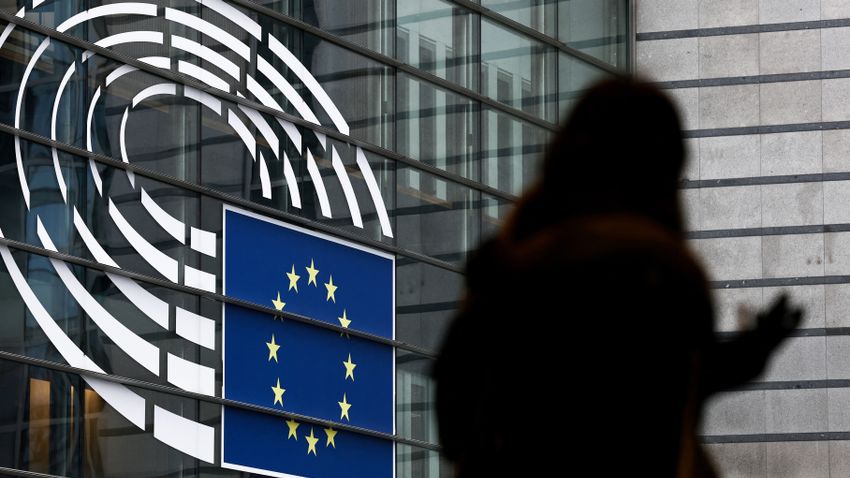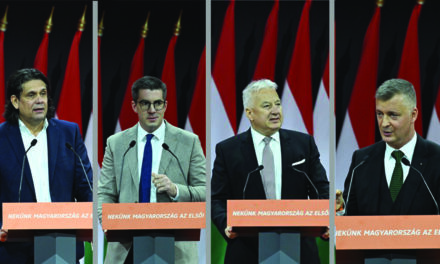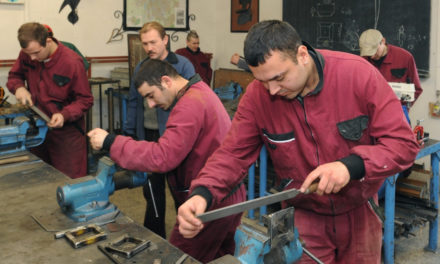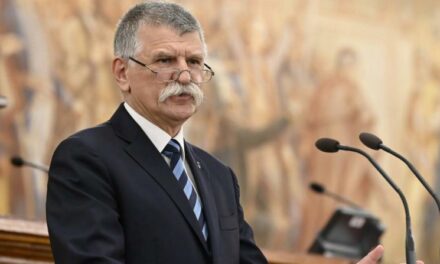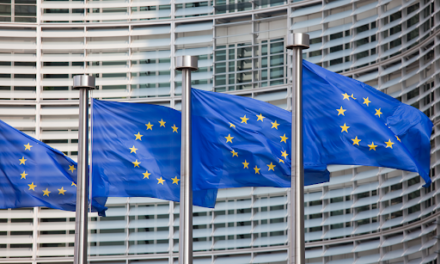Although the European Commission has not yet officially announced the schedule for the next few years, the leading Brussels institutes and think tanks are already reporting the most important strategic goals as fact.
The European Commission is preparing a significant budget reform in the coming months, the focus of which is the fulfillment of common European goals. Among these, Brussels' most important priority is long-term support for Ukraine, as well as the transformation of EU decision-making and the narrowing of the room for maneuver of sovereignist leaders such as Viktor Orbán. Brussels would fundamentally change the budget of the European Union from the new EU budget cycle starting in 2028. From the proposals that have come to light so far and from the statements of Ursula von der Leyen, the President of the European Commission, it is now clear what exactly the mid- and long-term goals of the European body are. Von der Leyen will hold hearings for the future commissioners next week, and the 26 future commission officials will be tasked with preparing Brussels' goals during their term of office until 2029.
Although the European Commission has not yet officially announced the schedule for the next few years, the leading Brussels institutes and think tanks are already reporting the most important strategic goals as fact. These
• the defense and security policy, i.e. the long-term, unconditional support of Ukraine,
• the implementation of climate goals and the green transition,
• digitization
• and the enlargement of the European Union,
• as well as the abolition of unanimous EU decision-making and the expansion of Brussels' exclusive decision-making powers.
To meet the goals, Brussels wants to implement a comprehensive budget reform in the new financial cycle starting in 2028.
At the same time, the use of the resources would be managed by Ursula von der Leyen's committee, with less input from the member states, and the unanimous decision-making of the member states would also be abolished.
And the qualified majority means that essentially Western Europe would take over the management of the entire community.
Supporting Ukraine makes all the difference
the Brussels-based Bruegel Institute and the European Policy Center , have traditionally been authoritative for a long time in the creation of the European Commission's programs, and it is clear from previous statements that this will not be any different now.
EU citizens must prepare for the biggest change from 2028, as it is the next multi-year EU budget cycle in which meaningful reforms can already be implemented.
The call of Bruegel and the EPC is in line with the draft of Ursula von der Leyen and the leading factions of the European Parliament. The most important objective of the EU is the unconditional support of Ukraine, both on the battlefield and in the reconstruction of the country.
According to the assessment of the situation in Brussels, Ukraine can defeat Russia in a protracted material war, and the EU would provide all support to Kiev unconditionally.
In addition, everyone is counting on the fact that the United States, regardless of the outcome of the elections, will withdraw from the Ukrainian conflict and perform less and less of Europe's defense tasks.
That is why, in the long term, the EU sees the future of Europe's defense in the victory and military support of Ukraine.
In the foreground was the defense of the continent, but that was not the point
For this very reason, Brussels sees the strengthening of European defense and security policy as a priority task. The reason for this is that Europe's security currently depends on NATO and the United States, and is based on the individual contributions of the member states, which show significant differences.
The goal is therefore for the EU to build up and coordinate its defense capabilities. According to this, defense policy, including arms procurement and production, as well as digitalization and innovation, would increasingly be the responsibility of the EU, partly under the auspices of security policy and partly under the auspices of a common industrial policy.
The hundreds of pages of reports to the commission call on Brussels to place unlimited support for Ukraine through joint European arms and ammunition purchases at the center of its defense policy, while the continent's arms industry is based on innovation.
This is also fortunate – according to publicly available studies – because European arms manufacturing companies can test their innovations live on the Ukrainian front lines.
Brussels would finance the Russo-Ukrainian war on credit
Therefore, Brussels considers the defense of Ukraine not only existential, but also indispensable from the point of view of future defense policy. The main question, however, is where the EU will get the money for this, since the size of the EU budget is determined by the contributions of the member states and only a small part is own income.
In addition, the significant additional costs should be financed in such a way that the EU insists on fiscal austerity, that is, that the member states keep their budget deficits and public debt under control, which can most likely result in the reduction of public investments.
The governing knowledge centers in Brussels believe that several solutions are conceivable for the larger budget framework, including primarily a larger contribution from the member states. Since the member states that are net contributors to the EU coffers are believed to be reluctant to sacrifice additional budget resources for Brussels to use them within its coveted powers, a solution could therefore be
• taking out a new joint loan,
• maintaining a strict fiscal economic policy,
• transformation of the European cohesion policy,
• exclusive support of European Community Goods (ECGs),
• transformation of the Common Agricultural Policy,
• as well as the redirection of part of the taxes currently flowing to the member states to the EU coffers.
Brussels' goal is clear: it would exercise virtually full-scale supervision over EU funds, significantly reducing the member states' room for maneuver and keeping the Patriots, whom they label as "extreme right-wing", away, including reducing the Hungarian Prime Minister's room for maneuver.
National goals would be replaced by community goals
The biggest losers in the budget cycle after 2028 would be national governments and farmers. The reason for this is that the cohesion funds, which are currently a separate coffers, and the Common Agricultural Policy, which is also financed from a separate pocket, would be abolished by Brussels in their current form and these resources would be concentrated in a single pocket.
It would tie their use to various goals, primarily rule of law and climate goals, and make the resources allocated to catch-up member states and competitive agriculture available for the implementation of so-called community goods (EPGs).
This means that the member states could only use the EU subsidies for national purposes that go beyond the borders of the given member state and the implementation of the programs takes into account the interests of the entire community.
Such a goal could be, for example, emission reduction, i.e. the implementation of investments that also contribute to the EU's climate goals. The distribution of the funds would be coordinated by the European Commission and institutionalized frameworks would be given to the withholding of funds currently applied to Hungary, which is highly questionable and based on rule of law norms.
Viktor Orbán is the real thorn in the side of Brussels
It is no coincidence that the European Commission's priority is to reform EU decision-making as well, that is, in almost everything, a qualified majority based on population size should be adopted instead of the unanimous consent of the member states.
It is therefore an undisclosed goal to narrow the room for maneuver of Hungarian Prime Minister Viktor Orbán and the Patriots for Europe faction, which is why the Hungarian Prime Minister and our country may come under increasing political pressure in the coming years. Several reports make it clear that Viktor Orbán and the "far right" represent the real danger to Europe, as the growing right does not support the prolongation of the conflict in Ukraine and does not see the competitiveness of Europe and the future of the continent in federalization.
Featured Image: Kenzo Tribouillard

